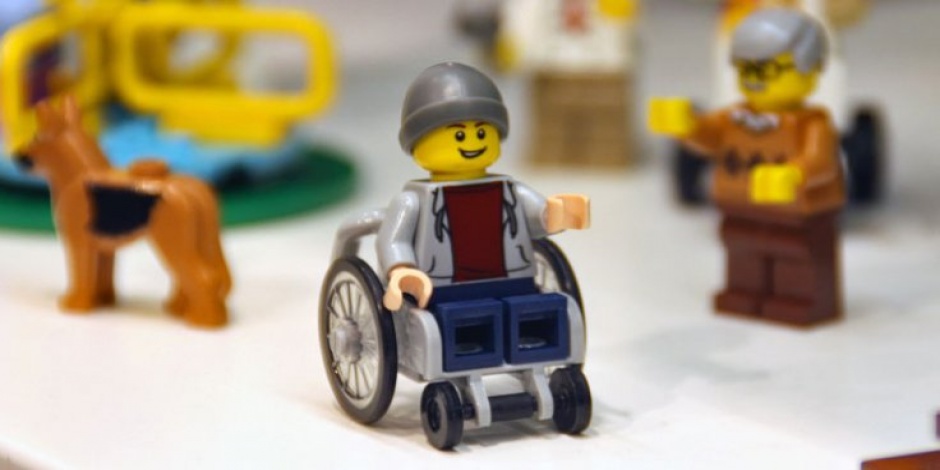Now that LEGO has unveiled a wheelchair using-figure and a stay-at-home dad in its latest LEGO City set, it seems the toy giant is embracing a true representation of society with its products. Jade Burke speaks to manufacturers and retailers to see what else vendors can do to provide kids with a more inclusive toy collection.

Toy giant LEGO is well known for its vast selection of play-sets, featuring various real life characters, such as police officers, builders and ferry drivers, but now the vendor has hit the headlines by introducing its very first wheelchair-using Minifigure.
During Nuremberg Toy Fair, LEGO touted the new figure, which comes complete with an assistance dog, as part of the new Fun in the Park LEGO City set due to hit shelves in June this year.
This certainly marks a notable milestone for the company, as Rebecca Atkinson, founder of the #ToyLikeMe campaign, has been calling for large toy firms to become more socially representative with their toys.
Atkinson tells ToyNews: “We are really pleased that LEGO is becoming more socially representative and we are delighted with the new wheelchair figure. It’s a small figure but a massive leap forwards for thousands of children worldwide who use wheelchairs and have until now seldom seen themselves reflected in the toys they play with.
“They can now see that the world’s largest toy brand is behind them and wants to culturally include them. That’s an amazing thing.“
This isn’t the first time that LEGO has started to socially represent more individuals though, for example kids can also now get their hands on a LEGO female scientist. Plus, the company also showcased its new stay-at-home dad complete with a pram and milk bottle and a working mum figure, as part of its latest LEGO City line.
Commenting on the social ramifications of the new figures, Soren Torp Laursen, president of LEGO Systems, told Fortune magazine earlier this year: “We need to stay in tune with the world around us. We aren’t responding to demand from anyone. We are trying to portray the world around us and listen to our consumer base.”
No doubt these figures go against the stereotypical norms of society and is refreshing for kids to see and play with on a daily basis, as Luan Hall, owner of Fairies ‘n’ Frogs, concurs: “As a teaching aid, I think these toys are as important to highlight as differing hair colour and male/female job types – it’s just an addition to the world we live in.”
Other indie retailers have also begun to express their gratitude with these types of toys, citing that some customers have started to ask for such products.
Paul Wohl, owner of Argosy Toys, explains: “You don’t see many space aliens walking around, although it makes for a great fantasy toy, so it’s nice to have a real-life touch to toys, definitely.”
Vivienne Watson, owner of The Cambridge Toy Shop, also agrees: “We do get asked for representative toys, but very occasionally, and it is frustrating to not be able to easily get hold of these products.
“I get asked for role play figures of people that children would regularly come into contact with such as doctors, dentists, teachers and family groups.”
However, it seems more still needs to be done to make children and parents aware of these types of toys to help drum up more interest for retailers.
“We’ve never been asked for more inclusive toys, despite having a very broad range of customers with specific needs,’ adds Dave Carter, co-owner of Arcade Toy Shop.
“We are sure that this inclusion of new characters that are more representative of society can only be a good thing. However, it’s only the customers that will bear this out.”
Now that LEGO has started to pave the way to represent all areas of society through toys, perhaps more vendors will adopt this stance.
“Toy manufacturers and retailers have a responsibility to make sure that they represent the people they are trying to appeal to,” concludes Roger Parry, senior MD at Build-A-Bear Workshop, a firm that already sells bears in wheelchairs, casts and crutches.
“Kids come into Build-A- Bear with disabilities and it’s our duty to make sure that they feel comfortable in our retail environment and can relate to the products that we are selling.”





